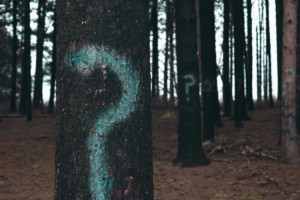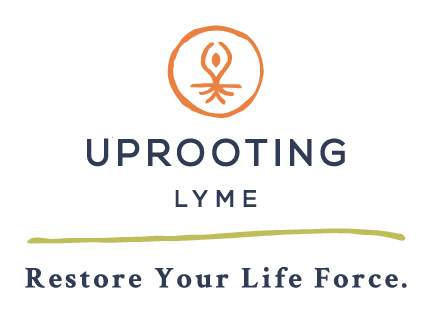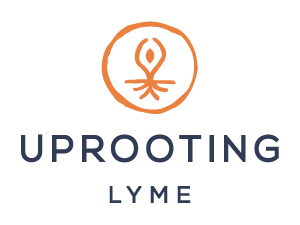
Interpreting Your Lyme Patients’ Ups & Downs For Greater Clinical Success
Recently a patient I was treating for Lyme who had been doing better and better, suddenly took a turn for the worse. In order to help her know what to do to manage and move through her flare, I needed to try and determine what had caused it.
Was it the effects of the laser acupuncture she had been receiving lately? Was it the new set of homeopathic medicines that another practitioner had recommended? Was it the  change of environment since she recently transitioned to her summer home? Was it a delayed response to a mercury amalgam removal procedure from several weeks ago? Something she was eating… or something else?
change of environment since she recently transitioned to her summer home? Was it a delayed response to a mercury amalgam removal procedure from several weeks ago? Something she was eating… or something else?
Health practitioners who treat Lyme, stealth infections and other complex chronic diseases are familiar with this guessing game. A major challenge to treatment success is the truckload of dynamic factors continually influencing body and brain chemistry – and often not in the positive direction towards health and well-being.
The Art of Interpreting Change
Between the best-laid treatment plan and the chaos of advancing disease lies the “zone of complexity.” It’s within this zone that doctors and practitioners of Lyme and complex chronic disease attempt to interpret the patient’s responses to treatment.
From my years exploring and experimenting with natural detoxification and fasting methods, I became good at understanding the difference between a disease crisis and a healing crisis. This understanding is crucial if we are to wisely interpret a patient’s ups and downs.
 Over the years I have heard many Lyme literate doctors, naturopaths, PA’s and other practitioners give feedback to patients who took a turn for the worse. In general, conventional medicine practitioners, even Lyme-literate ones with the best of intentions, don’t know how to analyze the unpredictable responses that Lyme patients often have to pharmaceuticals and other treatments. I’ve also seen a similar scenario played out with herbalists, homeopaths, etc.
Over the years I have heard many Lyme literate doctors, naturopaths, PA’s and other practitioners give feedback to patients who took a turn for the worse. In general, conventional medicine practitioners, even Lyme-literate ones with the best of intentions, don’t know how to analyze the unpredictable responses that Lyme patients often have to pharmaceuticals and other treatments. I’ve also seen a similar scenario played out with herbalists, homeopaths, etc.
They deny that their treatment is responsible for the setback because it doesn’t “make sense” to them. They may also refer out to a neurologist, cardiologist, etc., recommending specialist diagnostics in order to understand the unpredictable response of their patient.
Yet the so-called setback could be handled so much more productively in most cases, moving the patient forward in their recovery and deepening their trust in the course of treatment.
How can this happen? Understanding the difference between a disease crisis and a healing crisis is essential.
3 Basic Principles for Interpreting Change in Patients:
1.) Examine what preceded the flare (or acute symptomology) in terms of lifestyle. Was the patient implementing a detox regimen of some kind? In this case, chances are what has been provoked is a healing crisis, and the best way through this is continuing to detoxify and support the immune system.
On the other hand, if what preceded the apparent setback was a time of stress, a newly acquired infection, or poor lifestyle habits, then the symptoms likely do represent a progression of disease.
2.) Next, review the patient’s recent history in terms of energy. Had they just reached a new level of improved energy and vitality? This then is an indicator that the body has initiated a healing crisis, an advancement towards health, and the acute symptomology is a clearing of a layer of disease or infection that ought to be supported rather than suppressed. 
Conversely, if the patient had warning signs, or feelings and signs that his health was weakening, then the flare indicates a disease crisis.
3.) Finally, look at timing. Typically disease crises are not short-lived. They require at least a week to recover from, or they lead to a downward spiral of health. On the other hand, when handled properly, a healing crisis can be managed and supported so that the symptoms are relatively short-lived, lasting only a day to a week.
The Gift of Clinical Experience
“Good judgment comes from experience, and a lot of that comes from bad judgment.” – Will Rogers
There is no substitute for clinical experience. That’s why our year-long training for practitioners who want to specialize in holistic Lyme treatment is anchored in 3 live clinical experiences per year, which supply you with ample real-life cases to workshop, practice and apply the principles of holistic Lyme recovery in a guided setting.
Learn more and apply at www.uprootinglyme.com/mentorship/.
Interested in becoming a Holistic Lyme Specialist? Find out more about our year-long professional training, the Holistic Lyme Practitioner Mentorship.





